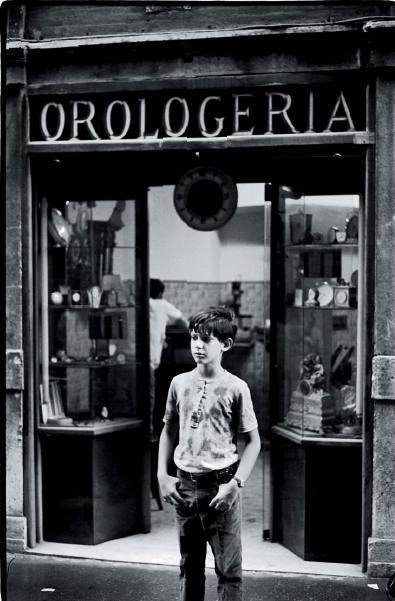17/9/2008
John R. Pepper
Photo4, Paris
Rome 1969. The photographs of John Pepper have a rare capacity to speak to us from silent moments, as though they were returning memories from our earlier lives.

The photographs of John Pepper have a rare capacity to speak to us from
silent moments, as though they were returning memories from our earlier
lives. In part, the universal appeal of Italy's post-war films, art and
literature make the men, women and children in Pepper's photographs close
and familiar to us. One after another they appear, in their shadows and
silences, emerging from a single, immense human tapestry. The child's face
next to the woman eating spun sugar candy (The Children are Watching Us)
has the wide-eyed wonder and innocence of Giulietta Messina in Fellini's
La Strada or Nights of Cabiria. The old woman holding the ladder (Rossi's
Christ Stopped at Eboli) seems to wait for us to return to a lost home or
childhood-captured in Obsession, the photograph of boys running in the
dark.
We have known these people in passing, yet now they have returned in these
black and white photographs. They wait for us to look once more, and for
the first time. deep within their shadows and silences, with hidden
meanings in our attempts to order and understand our lives.
Born in Rome of American parents, John Pepper was educated in the United
States and lives in Paris and New York. He was trained as a photographer
by Ugo Mulas and his father, Curtis Bill Pepper. But it was at his
parents' dinner table that he learned the most, listening to such
photographers as Cartier-Bresson, Sam Shaw, John Ross, as they made their
way through the family home in the 1960s and 70s. In Pepper's work as a
photographer, filmmaker, painter and theater director, the recurring theme
is people, and their nature.
Image: "Ladri di biciclette", 1969.
Photo4 Paris
4 rue Bonaparte- Paris VI
Tues-Sat 2 - 7 pm



